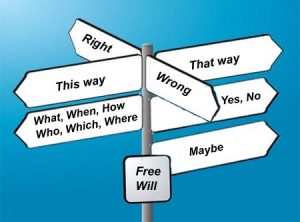Are Calvinism and Predestination Biblical?
Is Calvinism Biblical? How do Calvinistic views agree or disagree with the Bible? Are Calvinism and predestination Biblical? The following article from The Christian Post, January 7, 2025, examines these issues.
The Gospel according to Calvinism
“The salvation of a single soul is more important than the production or preservation of all the epics and tragedies in the world … The glory of God, and, as our only means to glorifying Him, the salvation of human souls, is the real business of life” (C.S. Lewis).
In Luke Chapter 2 we get an account of the first words spoken by Jesus in the Gospels, “ … I must be about My Father’s business” (Luke 2:49 NKJV)
 Some people, even preachers, say that everything that happens in the world – good, bad, or otherwise – is the will of God. Is it? But often, people wonder, “Why do tragic things happen to good people?”
Some people, even preachers, say that everything that happens in the world – good, bad, or otherwise – is the will of God. Is it? But often, people wonder, “Why do tragic things happen to good people?”